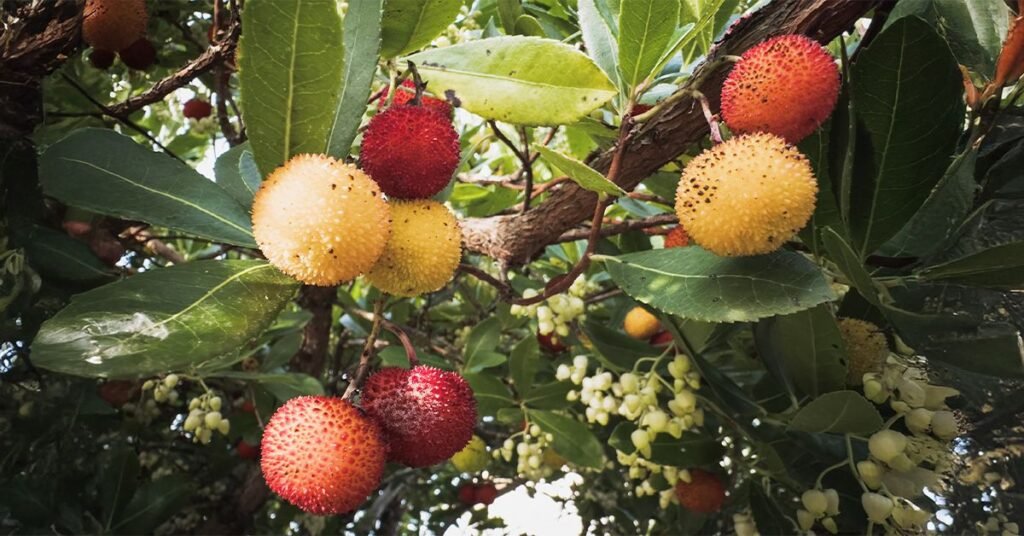IBD is an umbrella term that mainly refers to two conditions, ulcerative colitis and Crohn’s disease, both of which are chronic inflammatory diseases of the digestive system.
For this study, researchers focused on an extract from a Mediterranean plant known as Arbutus unedo or the strawberry tree. Grown in the Mediterranean region and Western Europe, the plant’s bark, strawberry-like fruit, and leaves has a history of being used in traditional medicine.
“We became interested in the valorization of plants for their effects on the gastrointestinal system. Initially, we studied the effects of the aqueous extract from Arbutus unedo fruits on obesity, followed by its impact on constipation in obese rats,” Soumaya Wahabi, PhD, a researcher at the Higher Institute of Biotechnology of Beja at the University of Jendouba in Tunisia, and corresponding author of this study, told Medical News Today.
“Building on these findings, we decided to continue in the same direction and explore the effects of this extract on inflammation, particularly in the case of ulcerative colitis,” Wahabi explained.
Past research has found the fruit and leaves from the strawberry tree to be high in antioxidants, and to have antimicrobial, antiviral, and anti-inflammatory properties.
“Arbutus unedo extract contains phenolic compounds, such as phenolic acids (cinnamic acid, ferulic acid, sinapic acid, syringic acid, and chlorogenic acid) and flavonoids (rutin, catechin, myricetin, naringenin, and quercetin),” Wahabi detailed.
“These are known for their antioxidant and anti-inflammatory properties, which can help reduce oxidative stress and inflammation, key factors in the development of ulcerative colitis,” she pointed out.
Wahabi and her team used a mouse model to find out if extract from the strawberry tree would be beneficial for ulcerative colitis or not.
Researchers gave mice doses of the strawberry tree extract before exposing them to a chemical that induces ulcerative colitis.
At the study’s conclusion, researchers found that pretreatment with the plant extract helped to prevent changes from occurring in the lining of the colon, and also helped decrease the development of colonic lesions, when compared to mice who did not receive the extract.
“This finding is important because it suggests that Arbutus unedo extract can help protect the colon from damage and reduce the severity of ulcerative colitis,” Wahabi said. “By preventing damage to the colon lining and reducing lesions, the extract could provide a natural way to reduce inflammation and protect gut health in ulcerative colitis.”
Additionally, scientists discovered that mice pretreated with strawberry plant extract had a lower expression of certain proteins that promote oxidative stress and inflammation.
“This finding is significant because it indicates that Arbutus unedo extract may help reduce oxidative stress and inflammation, key factors in the development of ulcerative colitis,” Wahabi explained. “By decreasing the expression of proteins that promote these harmful processes, the extract could offer a protective effect, potentially reducing the severity of the disease and supporting gut health.”
“We plan to conduct further studies to better elucidate the exact mechanisms by which Arbutus unedo extract exerts its effects,” she continued. “Additionally, we aim to evaluate its impact in human cell models, such as Caco-2 cells, which are a well-established intestinal epithelial model, to further validate its therapeutic potential in treating gastrointestinal diseases.”
MNT spoke with Jillian Cohen, MD, DABFM, ABOIM, network medical director of Hackensack Meridian Health’s Integrative Health and Medicine at the Jersey Shore University Medical Center in New Jersey, about this study.
“As an integrative medicine physician who sees and cares for patients with ulcerative colitis or at high risk for it, I found the findings both promising and encouraging,” Cohen, who was not involved in the study, commented.
“While this is early data in an animal model, it’s exciting to see potential anti-inflammatory effects from a natural compound like strawberry tree extract. It highlights how much we still have to learn from nature and supports the value of exploring evidence-based, integrative approaches to complex chronic conditions like ulcerative colitis,” she told us.
“Current treatments for ulcerative colitis can be life-changing, but they’re not without challenges — many come with significant side effects, high costs, or limited long-term effectiveness,” Cohen continued. “There’s a growing need for more accessible, sustainable options that support healing with fewer trade-offs. Natural compounds, especially those with anti-inflammatory or immune-modulating properties, offer a promising area of study.”
“That said, ‘natural’ doesn’t always mean safe or risk-free. It’s essential that these therapies are studied rigorously, with the same attention to safety and effectiveness as conventional treatments. I’d like to see human clinical trials that examine not just efficacy but also safety, tolerability, and how this extract might be integrated into existing care. With solid clinical data, we can better assess whether compounds like this might become part of a comprehensive, patient-centered approach to preventing or managing ulcerative colitis.”
Not everyone has access to the Mediterranean strawberry tree. Monique Richard, MS, RDN, LDN, a registered dietitian nutritionist and owner of Nutrition-In-Sight, explained how people who may have or be at a high risk for ulcerative colitis could get similar benefits to those conferred by the strawberry tree — such as antioxidants and anti-inflammatory properties — by adding other foods to their diet.
Richard said there some specific nutrient findings related to IBD, in general, and ulcerative colitis, more specifically, have included the antioxidant glutathione that supports immune function, amino acids like glutamine that helps support our gut lining (mucosal layer), and polyphenols, which help protect the gut-lining, protect glutathione levels, are antimicrobial, anti-bacterial, and are anti-inflammatory.
Some examples of foods that have glutathione include:
Glutamine is found in foods such as:
Polyphenols sources include:
“A registered dietitian nutritionist (RDN) can customize recommendations based on the individual’s needs, their current condition, and the current status of their symptoms and food access,” Richard said. “Your gut is not like Vegas — what happens there doesn’t stay there. Don’t gamble with your health — take care.”


